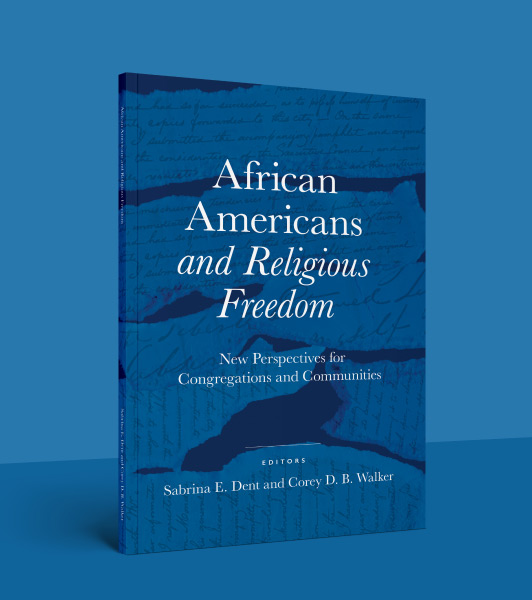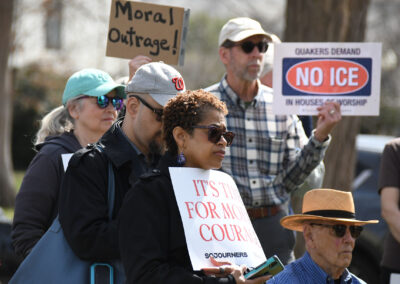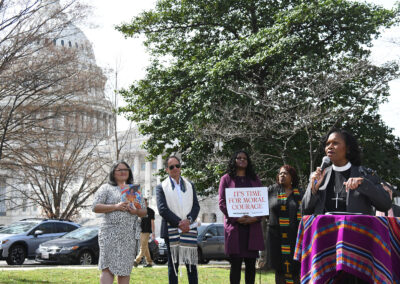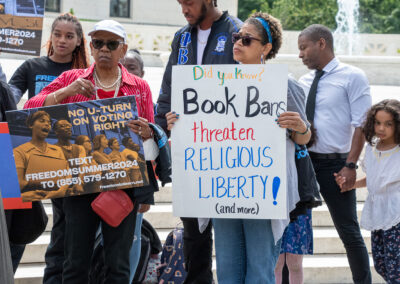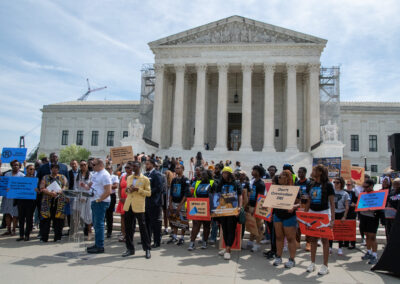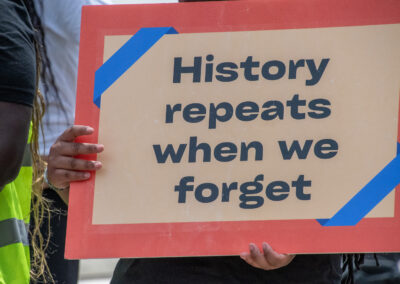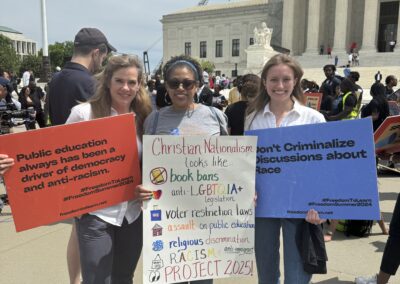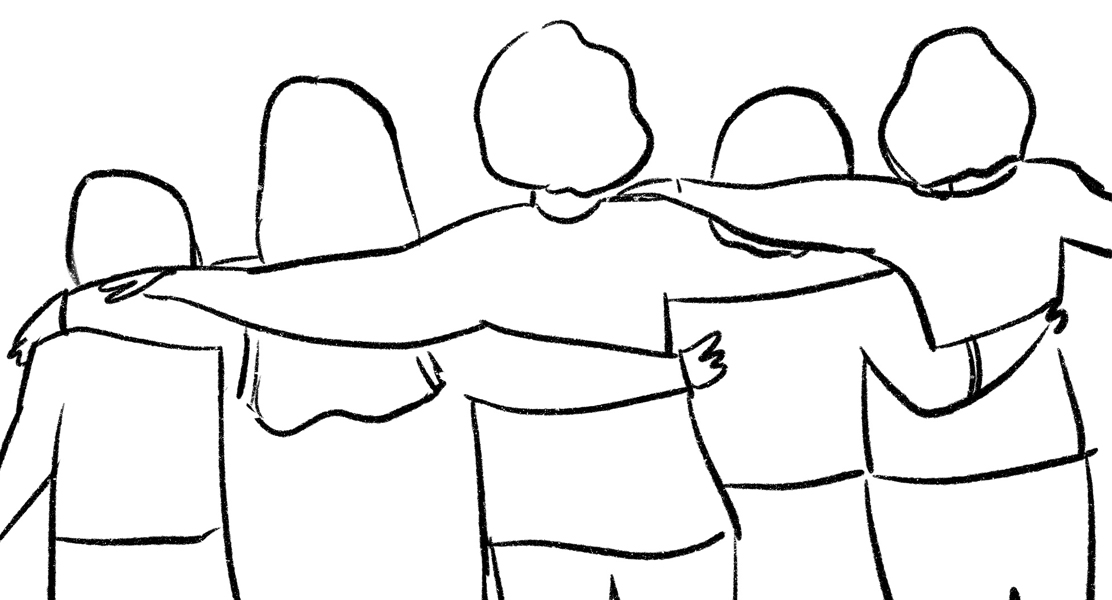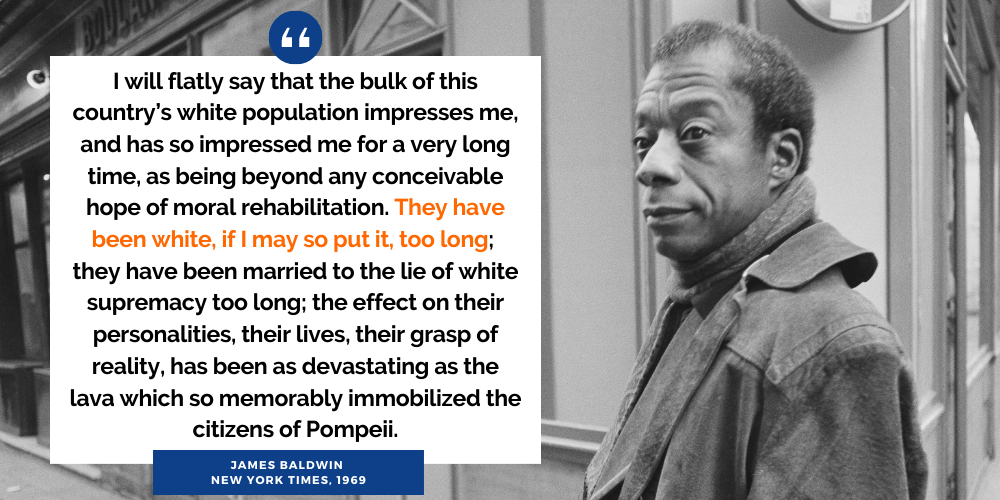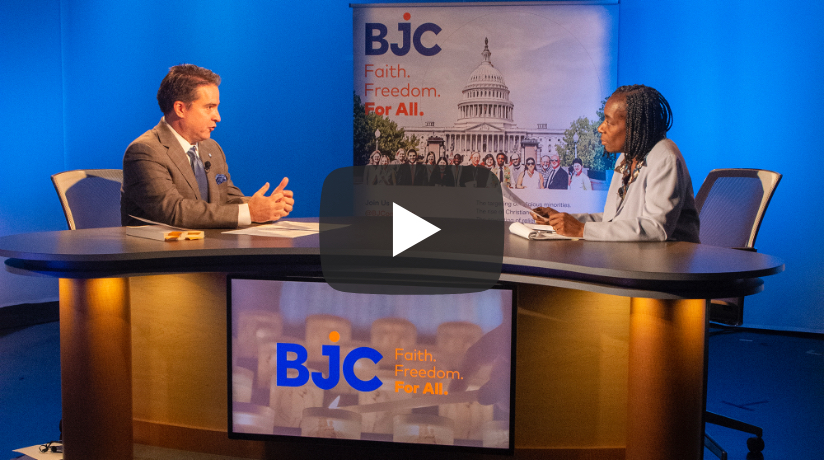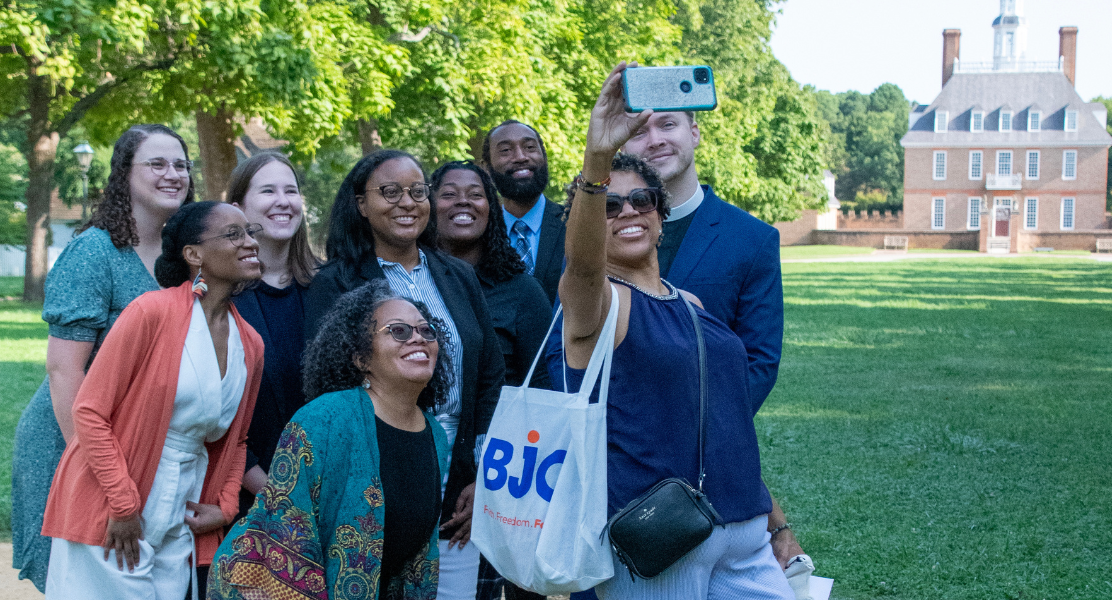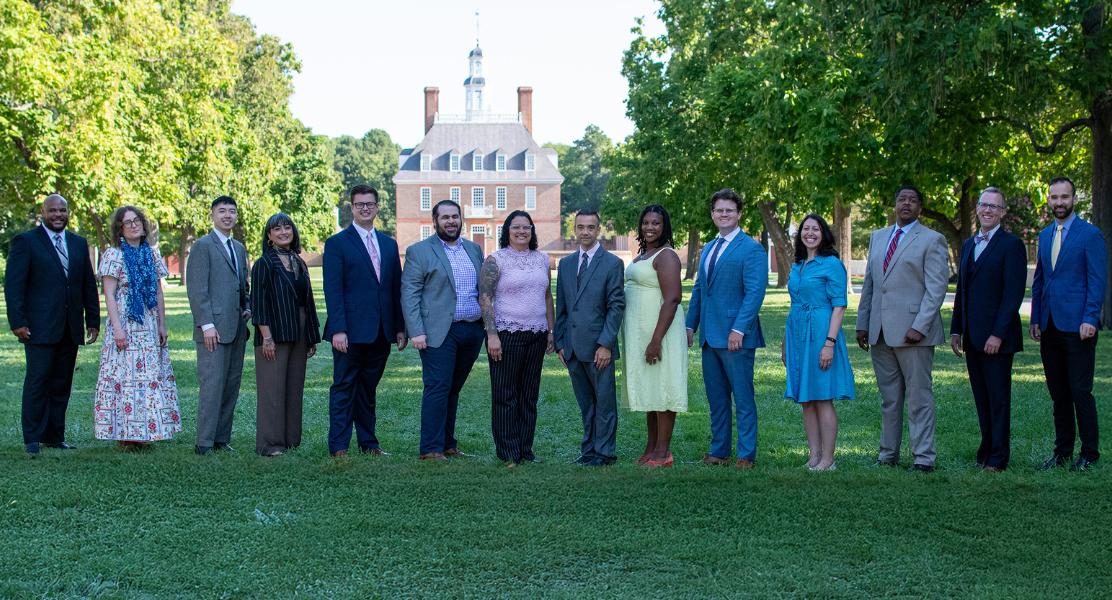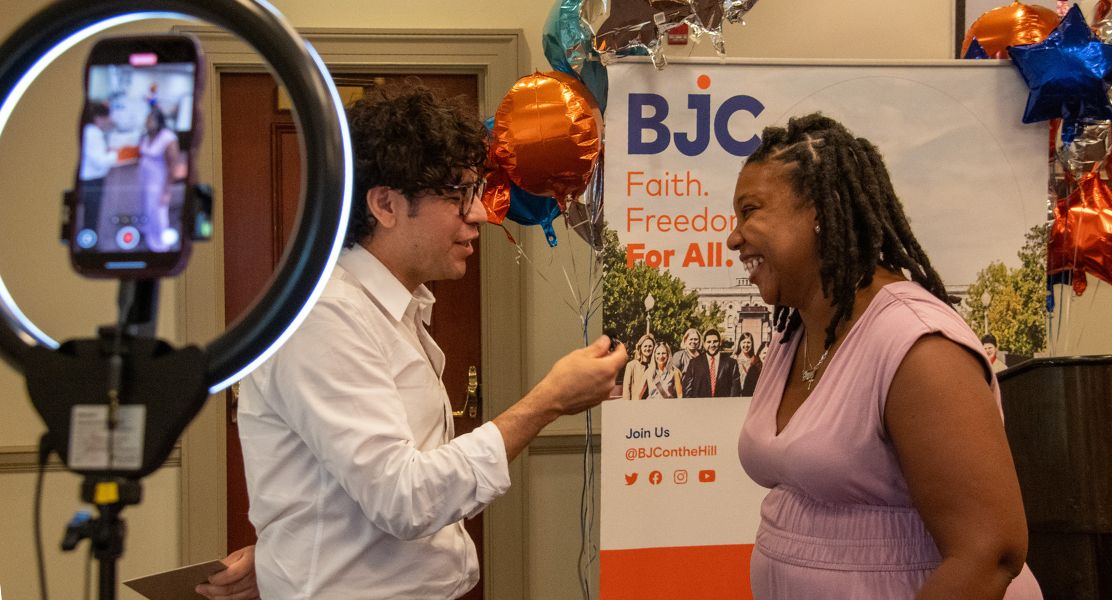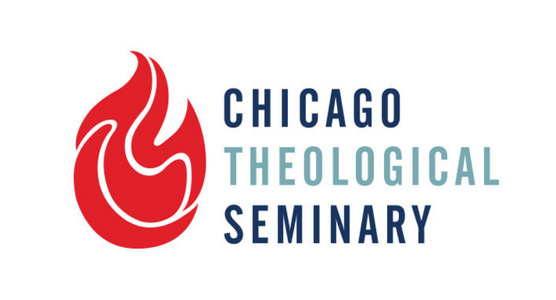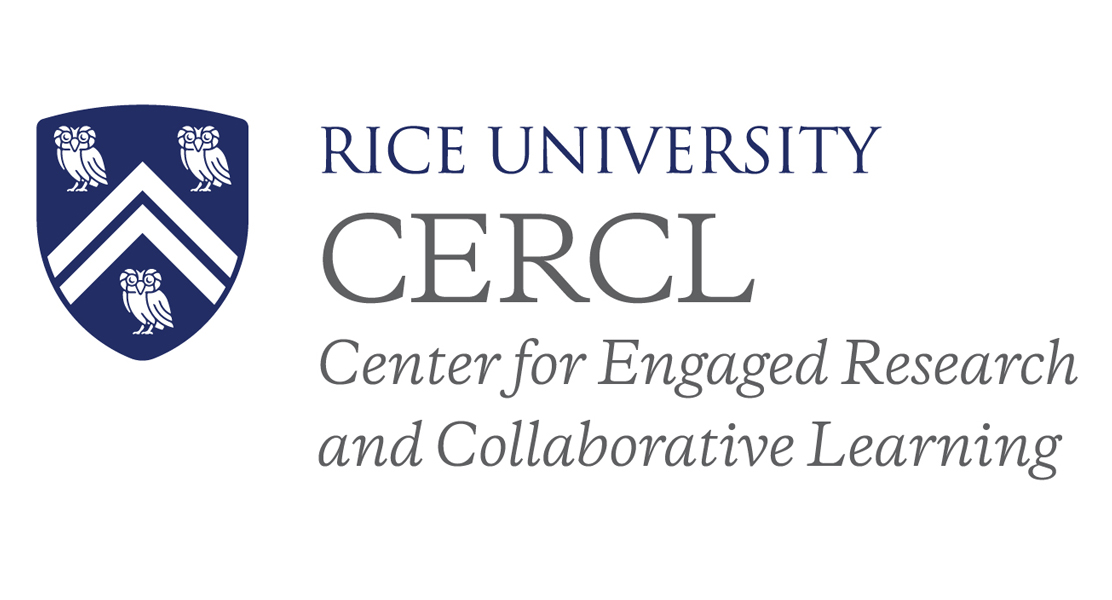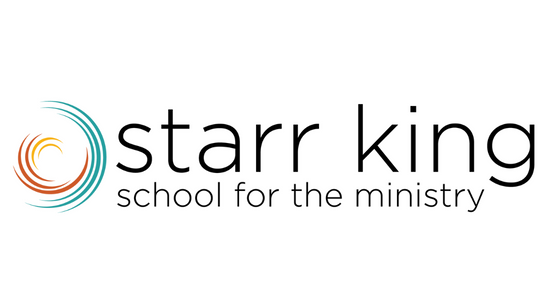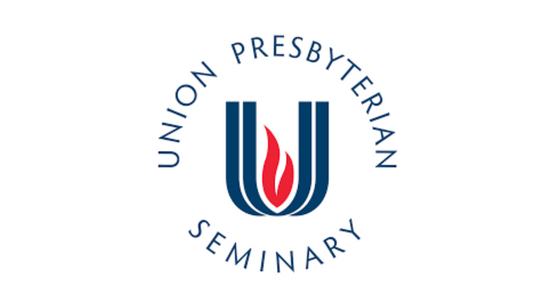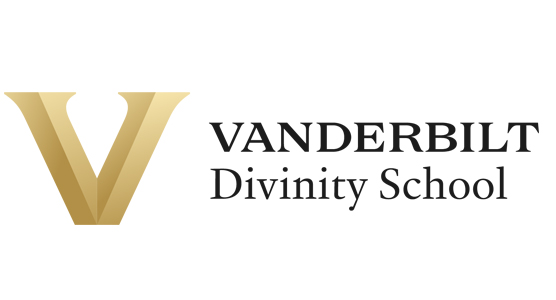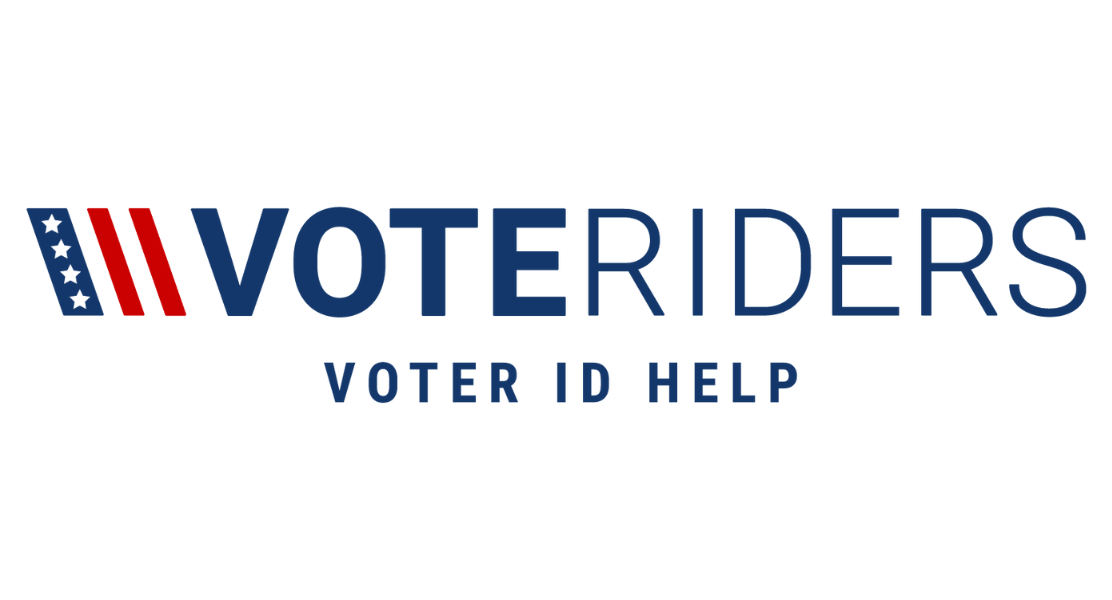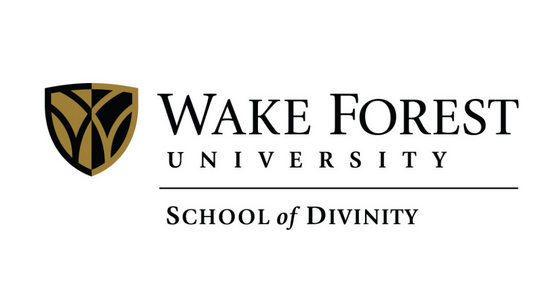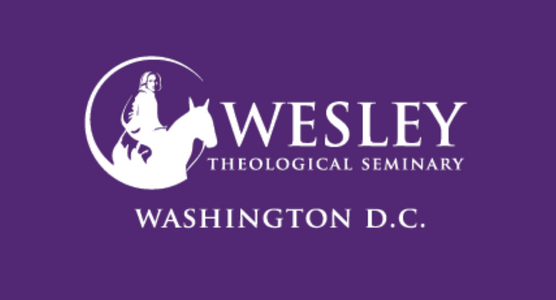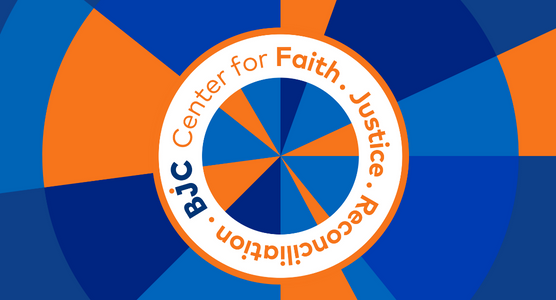Public discourse about religious freedom has been white too long.
The BJC Center for Faith, Justice and Reconciliation offers a variety of educational programs for students, congregations, community leaders, faith leaders and public officials that expand and deepen our understanding of religious freedom with a broader justice lens.
The Center is led by Dr. Sabrina E. Dent, a leading scholar and advocate at the intersection of faith freedom for all and racial justice. It also is the home of BJC’s Project on Race and Religious Freedom and the BJC Fellows Program. Scroll down to learn more about the Center’s programs and ongoing projects. You can also visit BJC’s education page for other programs.
Your support of this work matters. Click below to make a specific donation to the BJC Center for Faith, Justice and Reconciliation.
Resource
African Americans and Religious Freedom
The second edition of African Americans and Religious Freedom: New Perspectives for Congregations and Communities is now available. This collection of essays provide novel interpretations of religious freedom informed by African American culture, history, ideas and religious experiences. Edited by Dr. Sabrina E. Dent and Dr. Corey D.B. Walker, the second edition released in 2025 includes a new preface addressing the need for religious freedom to undergo a deep interrogation in our perilous times.
New experiences
Religious Freedom Immersion Experience
Religious freedom is essential to democracy and freedom for all. The Religious Freedom Immersion Experience equips congregations, organizers, and faith and community leaders with the tools and resources to engage in public discourse that supports our changing pluralistic society. This includes listening to the experiences of people from diverse racial, cultural and religious identities and worldviews.
The week-long immersion experience offers multifaceted learning opportunities, including presentations from experts, scholars, faith leaders and policy advocates; guided museum visits; and contextual learning at historic sites combining theological, museum and civic education to tell the broader story around religious freedom in the United States and how it impacts our world.
The Religious Freedom Immersion Experience premiered in 2025, visiting sites in and around Richmond, Va. Read more about it in the following two articles:
- Dr. Sabrina E. Dent recaps the overall experience in Richmond and how every location provided a clear reminder that symbols, language and diverse perspectives matter.
- Natalie Johnson-Abbott shares an important lesson from the experience, noting that the fight for religious freedom “requires standing tall in spaces that seem intent to shrink you.”
In the world
Supporting initiatives
The BJC Center for Faith, Justice and Reconciliation is committed to lifting up and listening to voices on issues that impact everyone.
Making “Good Trouble”
The BJC Center for Faith, Justice and Reconciliation partnered with Good Trouble Lives On, a national day of peaceful, nonviolent action and organizing on July 17, 2025. Whether you are outraged by attacks on voting rights, the gutting of essential services, disappearances of our neighbors, or the assault on free speech and our right to protest, this event was for you.
Faithful Witness Wednesdays
In spring 2025, Dr. Sabrina E. Dent and fellow BJC staff members attended the Faithful Witness Wednesday rallies, held on the grounds of the U.S. Capitol. Organized by Sojourners and many other partners from the Washington Interfaith Staff Community, the series of multi-faith vigils called on Congress to exercise greater moral courage by upholding its constitutional responsibilities and preventing executive overreach.
Freedom to Learn
In May 2024, Dr. Sabrina E. Dent and fellow BJC staff members attended the Freedom to Learn National Day of Action in front of the Supreme Court, hearing from diverse communities about the negative impacts of book bans, including how Christian nationalism-inspired policies can lead to the suppression of books of different religious beliefs. Click here to see more photos on Instagram.
Honest look at history
BJC’s Project on Race and Religious Freedom
Throughout our eight decades, BJC confesses and acknowledges that our table has not always been an inclusive place where everyone has been welcomed or made to feel at home. In 2019, BJC appointed a Special Committee on Race and Religious Liberty to study BJC’s past. We have been a group of white and Black Baptist denominations committed to protecting faith freedom for all. But, how welcome were Black Baptists at the BJC Board table, which was predominantly white? How well did BJC listen about Black concerns for freedom when they most could have used the power of BJC’s privileged allyship and advocacy?
That committee launched BJC’s Project on Race and Religious Freedom, reimagining our mission at the intersection of race and religious freedom and knowing that religious freedom is not possible without physical freedom.
The Project is an intentional effort to engage with and learn from experts with diverse backgrounds. It involves taking an honest look at our history and working to create and produce materials that train our staff and can be shared with churches, educators and student groups.
In 2024, Dr. Andrew Gardner — a member of the Special Committee — published an article in The Journal of Church and State titled, “Race, Religious Freedom, and the Institutional Limitations of the Baptist Joint Committee on Public Affairs.” It documents that, despite BJC’s multiracial origins, the organization had much stronger relationships with its predominantly white Southern and American Baptist constituents. As a result, BJC often neglected concerns of its predominantly Black constituents. He shares about his research and reactions in this piece for Baptist News Global.
This is an ongoing project for BJC. See below for more information and additional resources.
BJC Fellows Program
Since 2015, BJC has offered the BJC Fellows Program, providing young professionals the opportunity to deepen their historical, theological and legal understanding of religious liberty and develop skills to advocate for the cause throughout their careers. The program is now led by the BJC Center for Faith, Justice and Reconciliation.
BJC Fellows come from diverse educational, professional and religious backgrounds to learn in an intensive education program that equips them for advocacy to protect religious liberty.
Applications for the annual program open near the end of the year, and each cohort attends the BJC Fellows Seminar to learn from experts and from each other.
The right to vote
Religious freedom is not possible without personal freedom, and our rights are interconnected. The right to vote and the importance of free and fair elections allow us to have a functioning system of government that protects our rights, including our right to religious freedom. The BJC Center for Faith, Justice and Reconciliation encourages you to think about how you can use your freedom to protect other freedoms — as well as others’ freedoms.
Here are a few resources and articles from the Center about voting rights election readiness
- Good trouble lives on at the BJC Center for Faith, Justice and Reconciliation by Dr. Sabrina E. Dent for BJC’s summer/fall 2025 magazine
- Christian nationalism drives voter suppression efforts, panelists warn by Jeff Brumley for Baptist News Global
- What’s next? by Jaziah Masters for BJC’s winter 2024 magazine
- Protecting voting rights is a matter of human dignity and justice by Dr. Sabrina E. Dent for BJC’s spring 2024 magazine
- RESOURCE: The evolution of voting rights in the United States, published in BJC’s spring 2024 magazine
- The contested history of voting rights by Jaziah Masters, Reasearch Fellow for the BJC Center for Faith, Justice and Reconciliation, for BJC’s summer 2024 magazine
- Are you ready to vote this November?: A checklist for all voters for 2024 and a reminder of volunteer opportunities, which can be used as a resource any year
Resources
Looking for a deeper dive? Here are a resources from both BJC and our partners:
Black Religious Liberty Curriculum
Released in 2024, this resource is provided by the Columbia Law School Law, Rights & Religion Project. The 12-part video series features 24 interdisciplinary scholars in conversation on topics at the intersection of race, religion, and the law. The curriculum was created to expand, reframe, and diversify the public conversation on “religious liberty.” Click here to watch a webinar on the launch of the curriculum, featuring Dr. Sabrina E. Dent, director of the BJC Center for Faith, Justice and Reconciliation.
BJC’s resources on race and religious liberty
This section of BJC’s website features discussion guides, webinars, podcasts and videos that provide a deeper look into the variety of issues that exist at the intersection of race and religious freedom.
In-depth conversations
Religious Freedom Mobile Institute
Faith leaders have an opportunity to reimagine religious freedom to address social justice issues. The Religious Freedom Mobile Institute is a multi-day virtual program designed to engage religious and lay leaders in exploring the politics of race and religious freedom by centering the experiences of racial and religious minority communities.
These events bring together scholars, performers, experts and leaders to discuss religious freedom from a variety of angles and intersections.
“(Dis)Belief: Reimagining the Religious Landscape of Black America” was the title of the most recent Religious Freedom Mobile Institute, which took place October 26-27, 2023. Focusing on fostering dialogue between Black nontheists and Black Church leaders, it was a joint virtual symposium hosted by the BJC Center for Faith, Justice and Reconciliation and the Center for Engaged Research and Collaborative Learning.
In the future, we’ll be sharing some clips from these crucial conversations.
“The growth in the number of African Americans claiming to hold to no particular religious orientation has grown during the 21st century. And this demographic shift raises important questions needing our attention: How does this population of nones impact the Black Church? What assumptions concerning Black Christianity are challenged by the growth in the number of Black nones? Now is the time for explicit and public attention to these questions.”
Dr. Anthony Pinn
Agnes Cullen Arnold Professor of Humanities at Rice University
Founding Director, Center for Engaged Research and Collaborative Learning
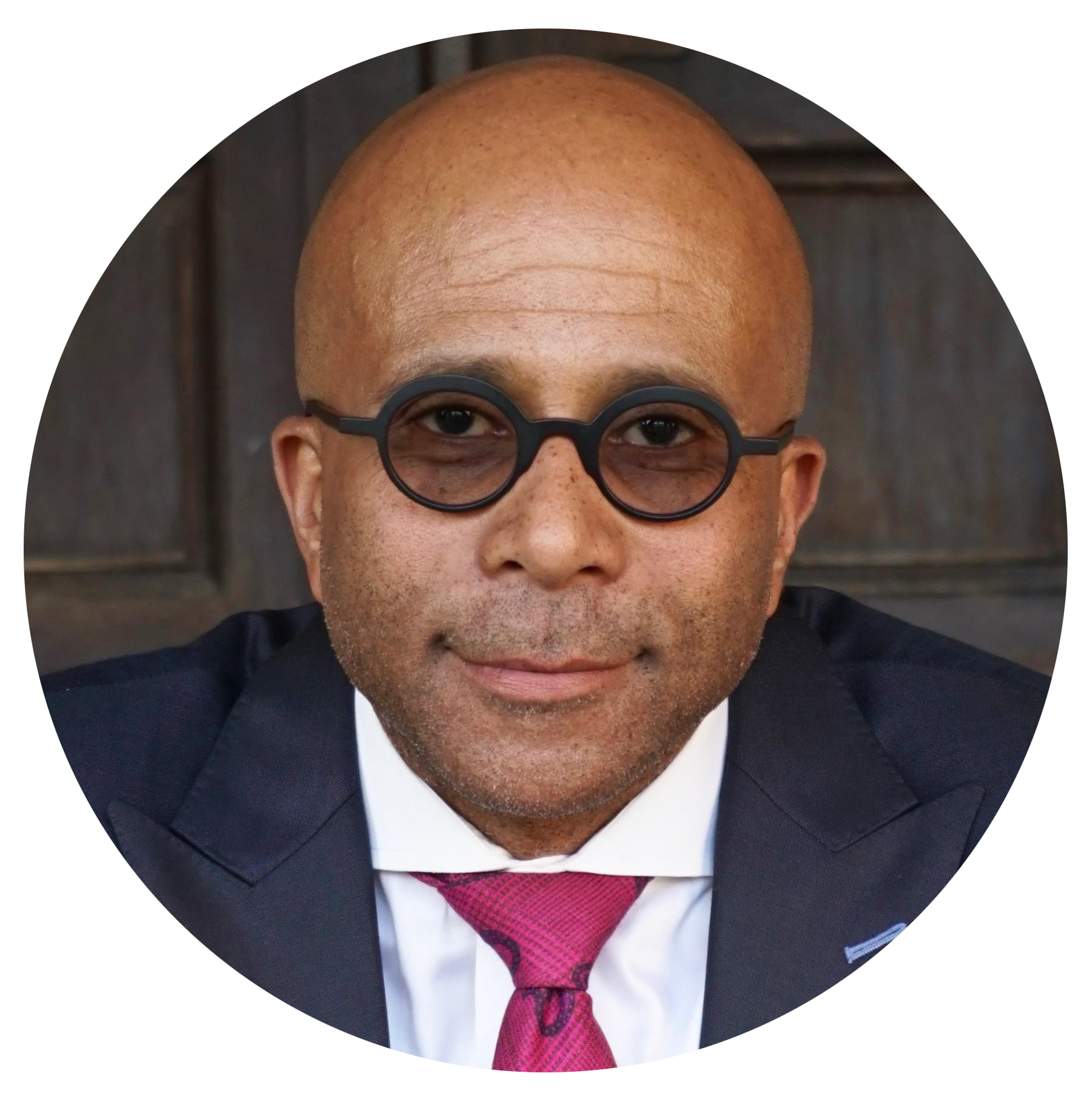
Previous editions
2022 Religious Freedom Mobile Institute: Rights, Responsibilities, Respect
2021 Religious Freedom Mobile Institute: Moving from education to advocacy
In the news
The BJC Center for Faith, Justice and Reconciliation speaks out about a variety of issues. If you’re a member of the media looking to connect with someone on a topic, contact Karlee Marshall at [email protected].
Here are a few articles and statements from or featuring the BJC Center for Faith, Justice and Reconciliation:
- Difference does not mean division by Jaziah Masters for BJC’s fall 2024 magazine
- Faith freedom for all calls for justice and reconciliation by Dr. Sabrina E. Dent for Baptist News Global
- The Center released a statement on the Supreme Court’s 2023 decision striking down race-conscious college admissions. Read more in this article from BJC’s fall 2023 magazine.
- It’s time to reimagine religious freedom, an article covering the 2023 event that introduced the work of the BJC Center.
- Baptist Joint Committee gains faith and justice center, grows religious liberty work by Adelle Banks for Religion News Service
- Dr. Sabrina E. Dent on the “Dangerous Dogma” podcast, hosted by Brian Kaylor
- Religious freedom has been ‘white too long,’ BJC speakers declare by Jeff Brumley for Baptist News Global
- “It’s time to talk about Blacks who believe and Blacks who don’t” by Dr. Sabrina E. Dent and Dr. Anthony Pinn for OnlySky
Events
Speaking engagements and opportunities to connect with the BJC Center for Faith, Justice and Reconciliation are listed on the main BJC website calendar.
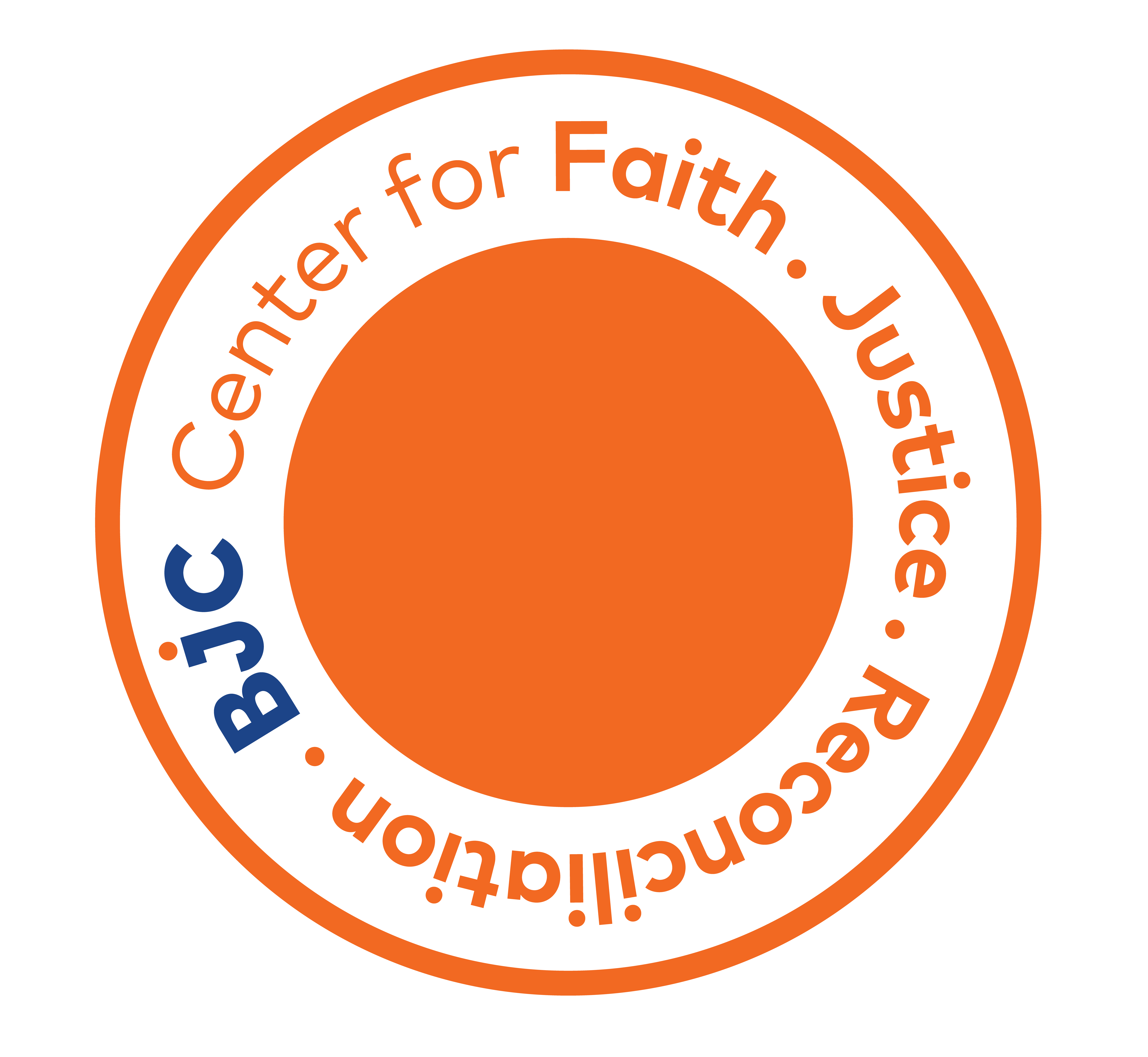
Partners
Advisory council
- Rahmah Abdulaleem, co-chair of the Religious Freedom Committee of the American Bar Association, Section of Civil Rights and Social Justice
- PJ Andrews, Race Discourse Officer, Baha’is of the U.S. Public Affairs Office
- Brad R. Braxton, President and Professor of Public Theology, Chicago Theological Seminary and Founding Senior Pastor, The Open Church
- Linda McKinnish Bridges, Director of Corporate and Foundation Relations, Salem College and Former President and Founding Faculty Member, Baptist Theological Seminary at Richmond
- Harmeet Kaur Kamboj, interfaith educator, public scholar, organizer and performing artist
- Bill J. Leonard, Founding Dean and Professor of Divinity Emeritus, Wake Forest University School of Divinity
- Keisha E. McKenzie, Public Strategist and Director, McKenzie Consulting Group
- Anthony B. Pinn, Agnes Cullen Arnold Distinguished Professor of Humanities and Founding Director, Center for Engaged Research and Collaborative Learning
- Tahil Sharma, Regional Coordinator for North America at United Religions Initiative
- Corey D. B. Walker, Dean, School of Divinity and Wake Forest Professor of the Humanities, Wake Forest University
- Bill Wilson, Director, Center for Healthy Churches and Former Chair, Board of Trustees of Baptist Theological Seminary at Richmond
“The challenges facing our society and world continue to call for audacious actions, conscious commitments, and deep faith. As the Center moves into a new and exciting relationship with BJC, I know that its rich heritage, bold vision, and brave voice will continue to ground us in creating a beloved community for all.”
Dr. Corey D. B. Walker
Dean, Wake Forest University School of Divinity
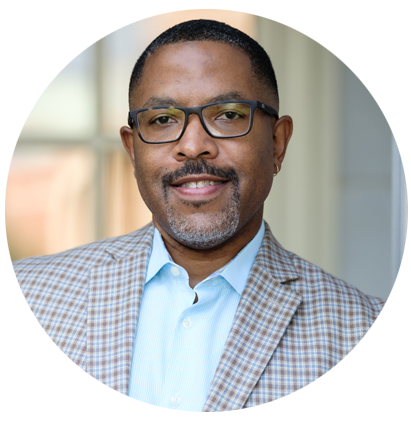
“Through the BJC Center for Faith, Justice and Reconciliation, the spirit of BTSR’s vision continues to light the way forward, seeking to build a truly inclusive, beloved community that offers religious freedom for all.”
Dr. Linda McKinnish Bridges
Founding faculty member and president, Baptist Theological Seminary at Richmond (BTSR)
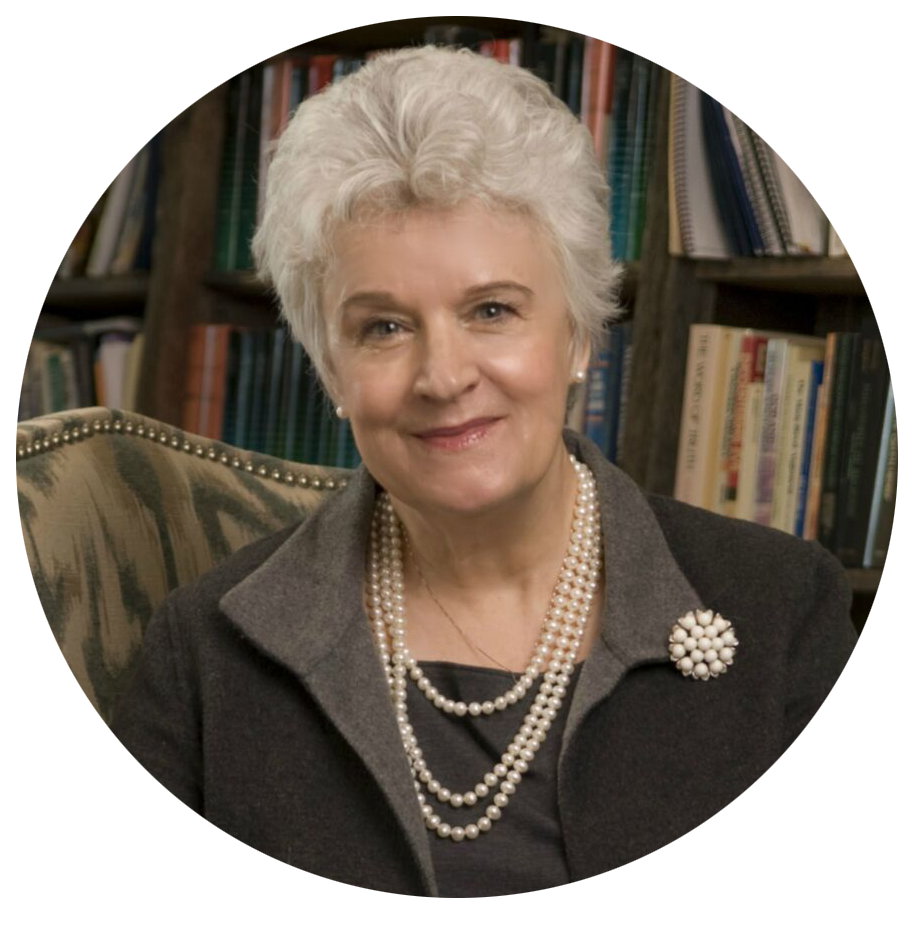
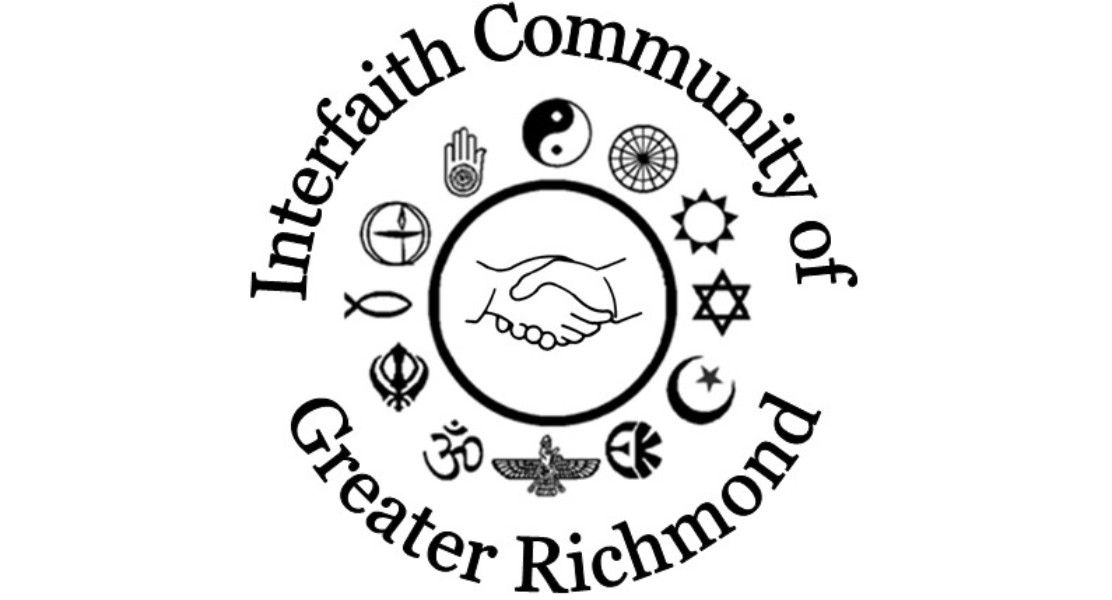
Interfaith Community of Greater Richmond
History of the Center
History of the BJC Center for Faith, Justice and Reconciliation
The Center was born out of the heritage of Baptist Theological Seminary at Richmond (BTSR), which opened its doors in 1991. BTSR’s partnerships as a member of the multi-racial and ecumenical Richmond Theological Consortium were a vital part of its mission and identity. Other members of the Consortium include the Samuel Dewitt Proctor School of Theology at Virginia Union University (a historically Black seminary founded by American Baptists), as well as Union Theological Seminary and Presbyterian School of Christian Education (which later merged to form Union Presbyterian Seminary).
In 2018, BTSR’s board realized being a freestanding institution was no longer viable, due to shifts in the church and in theological education. Out of merger talks with several theological institutions, the vision of establishing a Center for Faith, Justice, and Reconciliation emerged. The Center was incorporated in October 2019, with Dr. Corey D.B. Walker in the unpaid role of president.
In January 2022, the Center hired Dr. Sabrina Dent as the first full-time president. In 2023, the Center joined with BJC and became the BJC Center for Faith, Justice and Reconciliation, bringing its educational programs to advance justice and build cultures for reconciliation into partnership with BJC’s mission to extend and defend religious freedom for all.

